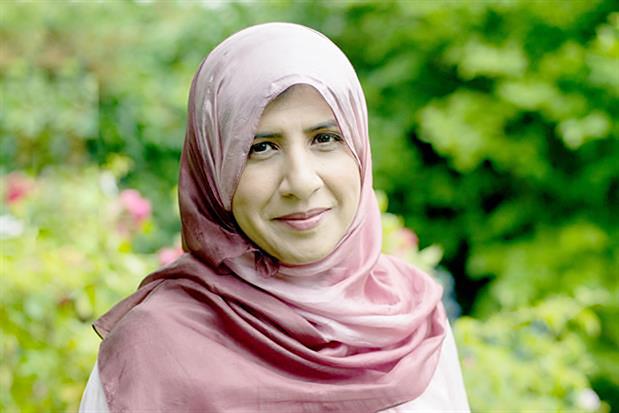It will be Ramadan in mid-April, which means if you’re a brand, business or organisation, it is time to start preparations for Ramadan and Eid. Wait, what? No preparations so far, no planning and no insights? Or maybe you’re having thoughts on the subject? Either way, when it comes to thinking about the UK’s four million Muslims, let me start by saying this: there is no time like the present to ramp things up.Â
We are at a moment when business growth opportunities are more important than ever, and we have the backdrop of a year when the needle – in words, if not yet in action – shifted firmly on diversity and inclusivity. Ramadan is the perfect confluence of both these important business drivers. Which makes this year’s Ramadan a chance to move away from thinking about tickbox “diversity” projects and instead think about business growth initiatives – and Ramadan should be right at the top of your list.  Â
According to our first-of-its-kind research at Ogilvy, “The Great British Ramadan” report, Muslims in the UK spend an estimated ÂŁ200m during the Ramadan season. Pre-pandemic it was the third-biggest season of the year after Christmas and Easter. Their contribution to the UK economy as a whole is about ÂŁ31bn annually. Â
Yet UK Muslims are disappointed when it comes to engagement during Ramadan. Sixty-two per cent say that they are not being served well by brands. Â
But here’s the good news: Muslims would like to invite brands into Ramadan, with 78% saying that they would be interested if brands did stock for Ramadan and Eid.  Â
Ramadan is the Muslim month of fasting – this year from mid-April to mid-May. It’s followed immediately by the celebration of Eid ul Fitr, the festival of breaking fast. The entire eight-week Ramadan season brings a total transformation of life, as those who observe the month itself will be fasting during daylight hours. That means no food, liquid, smoking, sex or any physical intake. It also means a focus on spirituality, charity, community and togetherness, while trying hard to make themselves a better person.Â
The shift is a paradox: enjoyable, uplifting, nourishing for the soul, but highly challenging for the body and energy levels. The other paradox is that there is also a lot of cooking and eating as eyes grow bigger than stomachs during the day, parents (especially wives and mums) seek to put everyone’s favourites on the table every evening, and traditionally people gather together to share the iftar, the evening meal.Â
However, Ramadan is about more than just food. It affects everything?, whether it is health and wellness, financial planning, charity, toys, gaming, fashion, beauty, takeaways, travel, vaccinations, pharmaceuticals, sleep, hydration, gyms and everything in between.
Last year’s Ramadan fell during the most severe period of lockdown. Muslim communities had to quickly reinvent Ramadan and Eid, a difficult thing to do when the spirituality of the month is tied to togetherness, community and congregation. Volunteer networks popped up to deliver iftar meals to those who were shielding. Zoom iftars and suhoors became the new normal. Drive-thru Eid celebrations were a thing, as parents drove families to mosques where toys and gifts were handed into cars at a safe social distance.  Â
The shadow of the pandemic hung low over everyone, and neighbours, friends and communities more widely shared in the month and its celebrations, because we were all in it together. And all of us wanted to share in each other’s joy. Â
But where were brands? Bar a few, they missed a seminal moment. Â
All is not lost, however: like all stories of redemption, there’s a second chance this year. And brands must grab it. After more than a decade advising brands and businesses, here is some practical advice from what I’ve learnt about the upcoming Ramadan and Eid occasions.Â
As a business, you will most likely have Muslim staff, suppliers, clients and consumers. It’s important to be prepared in advance with knowledge, insights and guidance on how to engage. Not the kind of stuff you learn in RE textbooks at school, but about how people live their lives, the dos and don’ts and the practicalities of how to interact. I call this getting practical guidance through a Ramadan toolkit.  Â
What about consumers? Start your campaign planning now. Ask actual experts in engaging with Muslim audiences, experts who have nuance and insight and experience. Please don’t walk down the (Zoom) hall and ask your friendly Muslim IT expert to give professional advice on marketing. (But do ask him or her how you can support them in Ramadan.) Â
Just in case it actually needs saying, meaningful inclusivity means going beyond black squares and lip service. It means ensuring that your brand speaks to consumers in a way that is relevant to their lives and supports their aspirations, needs and worries. It means taking care to apply the same quality of insight and execution to “diverse” audiences as to the “mainstream”.Â
For Ramadan and Eid, this means more than 1950s-style pictures of happy families. And a crescent moon logo in the corner is not going to cut it. Apply the same level of marketing insight and care to your Muslim audiences as you do to any other of your core audiences. Stage one: actually *do* some engagement.Â
Both of these are the underpinnings to a longer-term strategy for engaging with Muslim audiences that ensures they are woven into your business planning. Under-estimated, underrepresented, undervalued and most definitely under-served, Muslim audiences should be part of your growth initiatives. This Ramadan is the place to start. Â
Shelina Janmohamed is vice-president of Islamic marketing at Ogilvy Consulting and the author of Generation M: Young Muslims Changing the World.


